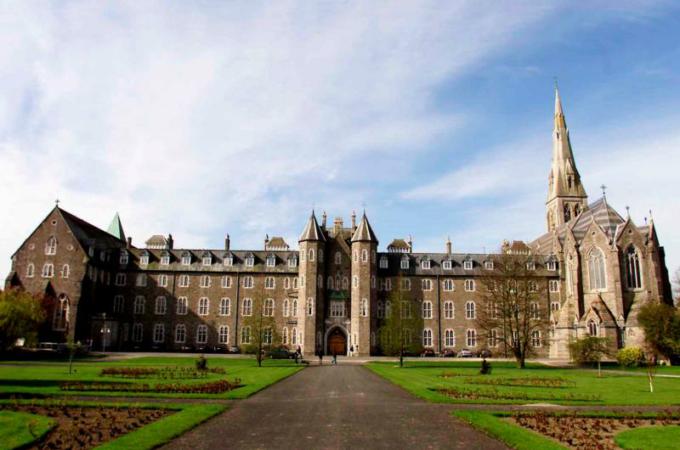Amid allegations, Dublin prelate to stop sending seminarians to Maynooth
DUBLIN (CNS) -- Archbishop Diarmuid Martin of Dublin said he would no longer send students to the national seminary at Maynooth amid allegations of inappropriate sexual behavior.
The archbishop referred to allegations of what he described as a "gay culture" in the seminary and further allegations that some seminarians have been using a gay dating app.
The archbishop said he was "somewhat unhappy about an atmosphere that was growing" at St. Patrick's College, Maynooth, saying he felt it was not the healthiest place for his students to be.
"There are people saying that anyone who tries to go to the authorities with an allegation are being dismissed from the seminary," the archbishop said in an interview with RTE Radio. He said his intention was to send students to Rome's Pontifical Irish College.
"There seems to an atmosphere of strange goings-on there (Maynooth); it seems like a quarrelsome place with anonymous letters being sent around.
"I don't think this is a good place for students," he said. "However, when I informed the (seminary) president of Maynooth of my decision, I did add 'at least for the moment.'"
The archbishop's decision to send his students to Rome comes after anonymous letters were circulated in clerical circles about student activities in Maynooth.
Archbishop Martin said if the allegations of seminarians using gay dating apps were true, "it would be inappropriate for seminarians, not just because they're training to be celibate priests, but because an app like that is something which is fostering promiscuous sexuality, which is certainly not in any way the mature vision of sexuality one would expect a priest to understand."
Referring to the allegations, Archbishop Martin noted that "the trouble with anonymous complaints is that it's almost impossible to carry out due process ... a culture of anonymous letters is poisonous. Until that's cleared up, I would be happier sending my students elsewhere."
He said he had offered to provide an independent person for whistleblowers to approach, but the response to this offer was the publication of more anonymous letters. The archbishop said authorities in Maynooth "have to find a way to let people come forward with solid evidence to substantiate the allegations."
He said he would not tell any bishop not to send students to Maynooth, because "that is a decision for them."
Msgr. Hugh Connolly, president of St. Patrick's College, Maynooth, confirmed that there is no investigation underway at the college. He told RTE some of the anonymous correspondence "has been difficult" and has made for "a less-than-satisfactory atmosphere in which to conduct formation."
He said allegations surrounding a gay culture at the college or seminarians using gay dating apps worried him and made him "very unhappy."
Maynooth, which is within the Archdiocese of Dublin, has been training young men for the priesthood since 1795. It and the Pontifical Irish College in Rome were the subject of a Vatican-ordered apostolic visitation in 2010 after allegations of a cover-up of clerical sexual abuse rocked the church in Ireland.
Currently, 55 seminarians are studying at the college for Ireland's 26 dioceses.



















